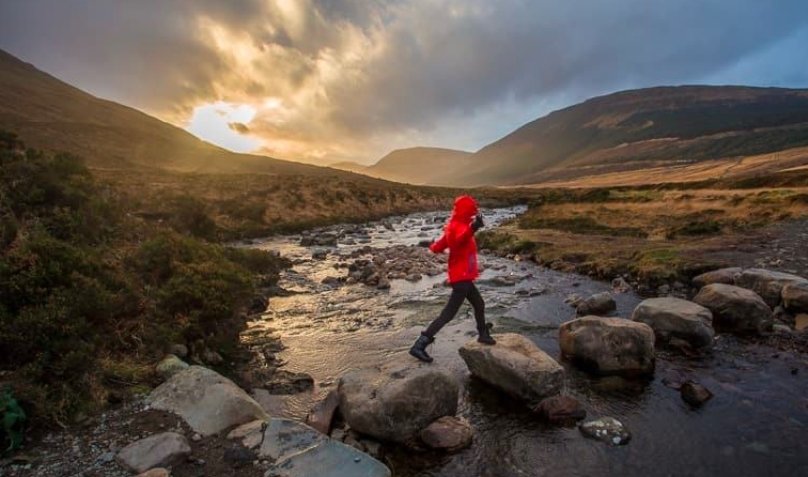Scotland’s tourism sector is roaring back to life. After years of travel disruption, the latest stats from VisitScotland confirm what locals have been noticing for months—crowds are back, languages from every continent fill city streets, and visitor spend is spiking.
International arrivals are booming. And the numbers don’t lie.
Post-COVID Recovery Turns into Full-Blown Tourism Bounce
The new data, published in the latest Great Britain Tourism Survey and shared by VisitScotland, shows that overseas visitor numbers rose significantly in 2024 compared to the previous year. That’s not just recovery—it’s acceleration.
While full-year figures are still being finalised, the provisional estimates indicate a double-digit percentage increase in international arrivals, led by travellers from North America, Germany, Australia, and France.
These aren’t casual weekenders either. Average spend per international trip also climbed sharply.
One Edinburgh café owner summed it up:
“We’re seeing queues again. But this time, it’s joyful. Everyone’s back. Americans, Germans, Australians—name a country, they’re here.”

Charts Show The Trend, Loud and Clear
You don’t need a spreadsheet to feel the change—but the data makes it undeniable.
Table: Scotland’s International Visitor Snapshot (2023 vs 2024)
| Metric | 2023 | 2024 (Est.) | Change |
|---|---|---|---|
| Overseas Visitors (Total Trips) | 3.2 million | 4.1 million | +28% |
| Visitor Spend | £2.5 billion | £3.2 billion | +28% |
| Top Source Market | USA | USA | — |
| Avg. Length of Stay | 6.4 nights | 6.9 nights | +8% |
| Top Destination Within Scotland | Edinburgh | Edinburgh | — |
VisitScotland said the uptick was “beyond expectations”, with some regions outperforming even pre-pandemic peaks.
Skye, Highlands, and Cities Lead the Pack
Not surprisingly, Edinburgh remains the magnet for global visitors. Castle views, August festivals, and Harry Potter tours don’t go out of style.
But the Isle of Skye, Loch Ness, and the NC500 route have quietly become international must-sees too.
In the Highlands, local businesses are scrambling to keep up. B&Bs in Ullapool, Inverness, and even tiny Kinlochewe report full bookings weeks ahead.
“It’s wild,” said Sarah McTavish, who runs a guesthouse outside Fort William. “Last year, it was trickle-in. This year? Booked out every weekend since April.”
Elsewhere:
-
Glasgow saw a big bounce thanks to live events and its growing food scene
-
Aberdeenshire reported a surge in North American tourists tracing ancestral roots
-
Outer Hebrides ferry operators noted an unusually early season demand
Why Now? Cheap Flights, Strong Dollar, and Word of Mouth
There’s no one reason behind the boom—but several clear drivers are in play.
-
Airline connectivity has improved massively. More direct flights to Edinburgh and Glasgow from the US, Canada, and key European hubs.
-
The weaker pound versus the dollar and euro made Scotland a relative bargain for many.
-
And honestly? Social media.
Travel reels, drone footage, and TikToks of misty glens and midges didn’t hurt.
VisitScotland said its global marketing campaigns were also effective—especially targeted digital pushes in New York, Toronto, and Munich.
One German couple interviewed in Oban said they booked after watching a YouTube hiking video. “It looked wild and quiet. We came the next week.”
A Boost for Businesses, But Also Pressure
Of course, not everyone’s cheering. More tourists also mean more strain on infrastructure.
Local councils are already grappling with:
-
Traffic congestion in popular rural routes
-
Strain on accommodation stock, particularly in the Highlands
-
Litter and sustainability issues on overcrowded trails
Skye’s Portree residents have called for visitor caps during peak summer months. Meanwhile, rangers in Glencoe say some trails are eroding faster than they can repair them.
Still, most agree the economic benefit outweighs the drawbacks—at least for now.
Tourists Are Spending—and Staying Longer
One notable shift this year: visitors aren’t just popping in for a photo-op at Edinburgh Castle and leaving.
Data shows the average length of stay is increasing. More travellers are booking multi-stop, 10-day holidays, exploring city, coast, and countryside all in one trip.
Spending habits have also changed:
-
Boutique hotels and unique Airbnbs are outperforming chains
-
Guided walking tours, heritage experiences, and food events are rising in popularity
-
Distillery visits and whisky tasting experiences saw record bookings, especially in Speyside
A tourism operator in Stirling said, “They’re not just coming to see Scotland anymore. They want to taste it. Feel it. Understand it.”


















